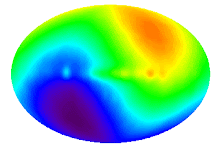The composition and activity of the gut microbiota codevelop with the host from birth and is subject to a complex interplay that depends on the host genome, nutrition, and life-style. The gut microbiota is involved in the regulation of multiple host metabolic pathways, giving rise to interactive host-microbiota metabolic, signaling, and immune-inflammatory axes that physiologically connect the gut, liver, muscle, and brain.
Establishing and maintaining beneficial interactions between the host and its associated microbiota are key requirements for host health. Although the gut microbiota has previously been studied in the context of inflammatory diseases, it has recently become clear that this microbial community has a beneficial role during normal homeostasis, modulating the host's immune system as well as influencing host development and physiology, including organ development and morphogenesis, and host metabolism. The gut microbiota--masters of host development and physiology
More than four million gene products from the microbiome could interact with the immune system to induce a tissue metabolic infection, which is the molecular origin of the low-grade inflammation that characterizes the onset of obesity and diabetes.
Regulation of Metabolism: A Cross Talk Between Gut Microbiota and Its Human Host
skip to main |
skip to sidebar
網誌存檔
-
▼
2013
(67)
-
▼
9月
(10)
- Frequently used definitions describing low oxygen
- Physiological oxygen tensions in a selection of no...
- 觀乎天文以察時變,觀乎人文以化成天下
- Cancer Genetics and Epigenetics Two Sides of the S...
- Cancer Epigenetics From Mechanism to Therapy
- Cancer Epigenetics From Mechanism to Therapy
- Osmolarity and tonicity
- your brain
- THE PRINCIPLES OF BRAIN
- the human superorganism
-
▼
9月
(10)

沒有留言:
張貼留言